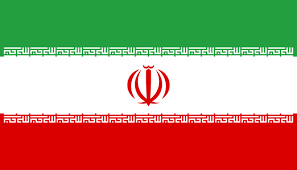Difference between revisions of "Language/Iranian-persian/Vocabulary/Lesson-1:-Saying-Hello-and-Goodbye"
m (Quick edit) |
m (Quick edit) |
||
| Line 1: | Line 1: | ||
<span pgnav> | |||
{| class="wikitable pg_template_nav" | |||
|[[Language/Iranian-persian/Vocabulary/Lesson-2:-Introducing-yourself-and-others|Next Lesson — Lesson 2: Introducing yourself and others ▶️]] | |||
|} | |||
</span> | |||
{{Iranian-persian-Page-Top}} | {{Iranian-persian-Page-Top}} | ||
| Line 116: | Line 122: | ||
{{Iranian-persian-Page-Bottom}} | {{Iranian-persian-Page-Bottom}} | ||
<span links></span> | <span links></span> | ||
<span pgnav> | |||
{| class="wikitable pg_template_nav" | |||
|[[Language/Iranian-persian/Vocabulary/Lesson-2:-Introducing-yourself-and-others|Next Lesson — Lesson 2: Introducing yourself and others ▶️]] | |||
|} | |||
</span> | |||
Revision as of 17:30, 29 March 2023
| Next Lesson — Lesson 2: Introducing yourself and others ▶️ |
As a Persian language teacher for over 20 years, I know how important it is to learn basic greetings and introductions when starting to learn any language. In this first lesson, we will focus on common ways to say "Hello" and "Goodbye" in Iranian Persian.
Consider exploring these related pages after completing this lesson: Post Office & Tools.
Basic Greetings
When greeting someone in Persian, it is customary to use polite language and show respect, especially to elders or people in positions of authority. Here are some common phrases you may use:
| Iranian Persian | Pronunciation | English |
|---|---|---|
| سلام | "salaam" | Hello |
| درود | "dorood" | Hello (more formal) |
| خوبی؟ | "khobi?" | How are you? |
| خوشحال میشوم که شما را میبینم | "khosh-haal mishavam ke shoma ra mibinam" | Nice to meet you (literally: "I become happy to see you") |
To respond to the question "How are you?" you can use:
| Iranian Persian | Pronunciation | English |
|---|---|---|
| خوبی | "khobi" | I am fine (literally: "Good") |
| نه خیلی خوب | "na kheyli khob" | Not very good |
Basic Introductions
When introducing yourself or someone else, you can use the following phrases:
| Iranian Persian | Pronunciation | English |
|---|---|---|
| مرا میشناسید؟ | "mara mishenasiyd?" | Do you know me? (literally: "Do you recognize me?") |
| من... هستم | "man... hastam" | I am... (name) |
To ask someone's name, you can say:
| Iranian Persian | Pronunciation | English |
|---|---|---|
| نام شما چیست؟ | "nam-e shoma chist?" | What is your name? (literally: "Your name is what?") |
| لطفاً نام خودتان را بگویید | "lotfan nam-e khodetan ra begooyid" | Please tell me your name (literally: "Say your name please") |
Basic Goodbyes
When saying goodbye to someone, you can use the following phrases:
| Iranian Persian | Pronunciation | English |
|---|---|---|
| خداحافظ | "khodaa-haafiz" | Goodbye |
| خدانگهدار | "khodaa-negahdaar" | Goodbye (formal) |
| به امید دیدار | "be omid-e didaar" | Goodbye (literally: "In hope of seeing again") |
It is also customary to express gratitude and appreciation when leaving a place or ending a conversation. You can use:
| Iranian Persian | Pronunciation | English |
|---|---|---|
| ممنون | "mamnoon" | Thank you |
| خدا نگهدار | "khodaa negahdaar" | God bless you (literally: "May God keep you") |
Remember to always use polite language and show respect when using these phrases.
Cultural Information
In Persian culture, greeting and hospitality are highly valued. When greeting someone, it is common to shake hands (or sometimes kiss on the cheeks if they are close friends or family members of the same gender). When entering a home, it is customary to bring a gift such as flowers or sweets, and to take off one's shoes before stepping on the carpets. When invited to a meal, it is polite to compliment the food and express gratitude to the host.
Practice, Practice, Practice
To practice saying "Hello" and "Goodbye" in Persian, try greeting a Persian-speaking friend or acquaintance. You can also practice with a language partner online or use language learning apps and resources.
Sources
Other Lessons
- Vehicles
- Means of Transport
- Family
- To know
- Idiomatic Expressions
- Dinner Table
- Photography
- Seasons
- Tools
- Parts of the Body
| Next Lesson — Lesson 2: Introducing yourself and others ▶️ |

